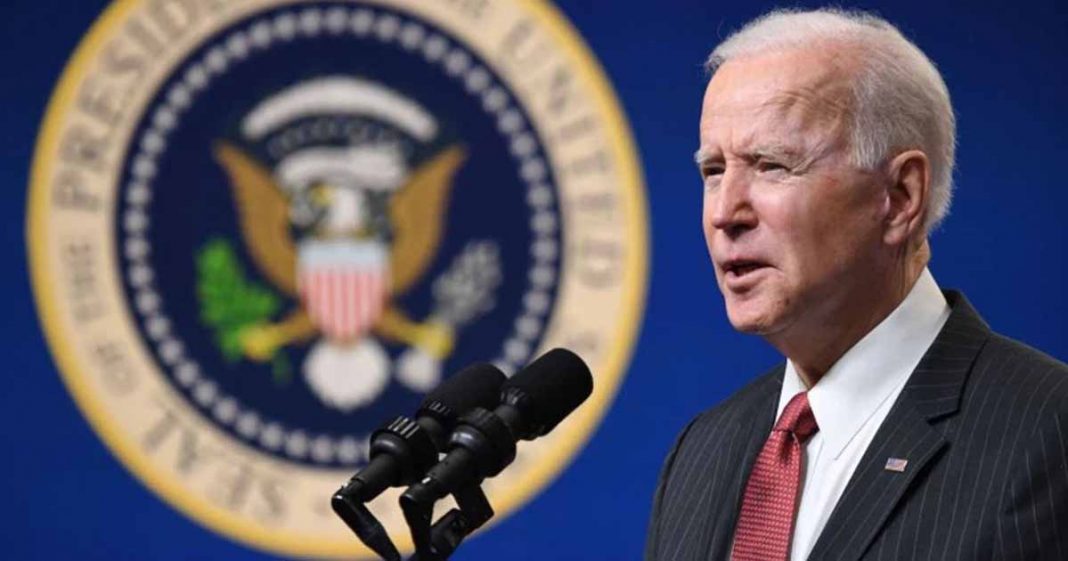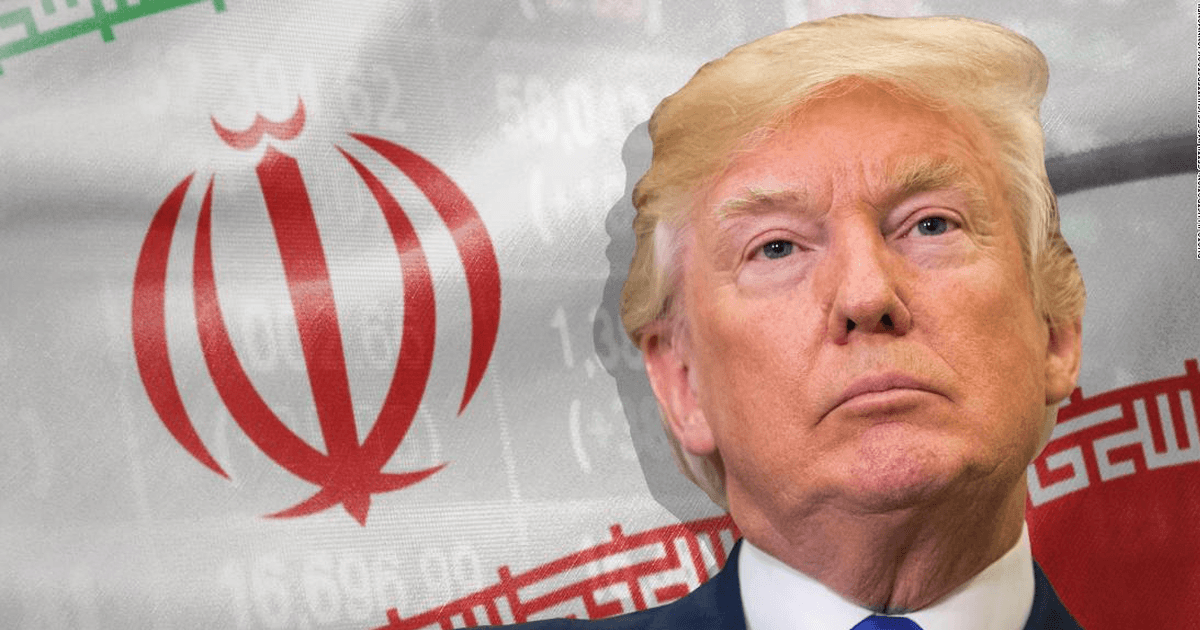President Joe Biden, after taking over as 46th president of the U.S. is confronted with a major challenge of rescuing the arms control regime, besides other foreign policy issues.
Currently, tensions are rising between the nuclear states, the risk of nuclear use is growing, billions are being spent on nuclear modernization and weapons sophistication; while in this scenario the key arms control agreements have kept a check on most destabilizing weapons, are in serious jeopardy.
Read more: Nuclear arms potential triggers escalation in South Asia
These complications have emerged in the aftermath of President Donald Trump’s aggressive foreign policy approach. During his tenure in the president’s office, Trump resorted to a haphazard decision-making process without considering the sensitivity of the issues and their implications in the longer run.
Besides this, the presence of hawkish elements in the Trump administration and the role of the U.S. Military Industrial Complex has further deteriorated the situation, especially in the arms control domain.
Read more: Trump’s sabre-rattling: Is a nuclear war between US and North Korea imminent?
President Joe Biden has a distinguished background of realizing the sensitivity of nuclear weapons, arms control, and issues pertaining to global security.
Contrasting with his predecessor, President Biden has a firm commitment to establish an effective nuclear arms control mechanism and nonproliferation regime which has been manifested in his maiden address during his oath-taking ceremony on January 20, 2021.
Biden’s commitment to arms control and disarmament dates back to his tenure as vice president in the Obama administration and his early days in the U.S. Senate. President Joe Biden, during his election campaign and after his win, has been continuously advocating for an effective arms control mechanism with Russia and other nuclear-armed states.
Read more: For Russia nuclear arms curbs are a ‘no brainer’ with Biden
Nuclear challenges facing Biden
Nuclear experts are of the view that currently, the Biden administration is facing the five most important challenges related to the nuclear weapons policy which need immediate attention to address the prevalent strategic issues.
The five challenges include the revision and advancement of the nuclear arms control negotiations including the extension of the New START, developing a consensus to reduce nuclear weapons at the global level (especially that of the U.S. and Russia), and reinstate the Joint Comprehensive Plan of Action (JCPOA).
Read more: Biden wants to extend the START nuclear treaty with Russia by five years
Besides this, the issue of North Korea’s nuclear program is also due for settlement. Finally, President Biden has to restore the role of the U.S. as a leader of multilateral nonproliferation and disarmament.
Recently, there are two important developments in the arms control domain. Firstly, President Biden has agreed to extend the New START for another five years till 2026, without any preconditions or amendments to the treaty.
Secondly, the Treaty on the Prohibition of Nuclear Weapons (TPNW) has entered into force on January 22, 2021. Moreover, the Biden administration has also declared to reconsider the U.S. commitment under JCPOA.
Read more: Iran urges US as lifting sanctions a must for reviving JCPOA
These are the positive initiatives by the new administration in Washington that would significantly improve the global strategic security and make the world safer from nuclear weapons’ threat.
These initial steps would also put the administration in a better position to pursue long-lasting and far-reaching nuclear risk reduction and elimination initiatives over the next four years.
Read more: Biden’s foreign policy agenda and the new world order
Extension of New START
The New START is considered as an anchor of strategic stability between Washington and Moscow. Moreover, it is a foundation stone in the arms control infrastructure as it limits the number of strategic forces of both Russia and the U.S.
The New START keeps special significance as it consolidates the gains of all the strategic talks held between Moscow and Washington from the 1970s to 2010, to reduce the size of their nuclear inventory.
Recently, President Joe Biden has extended the New START for another five years till February 5, 2026. Earlier, Russia had also expressed its desire to extend the New START treaty, but the conditions proposed by the Trump administration for the treaty’s extension were rejected by Moscow.
Read more: US, Russia nuclear talks to come to a halt?
It is noted that Biden understands the value of effective arms control arrangements as earlier he said the pursuit of arms control negotiations is not a symbol of weakness or luxury but a great obligation and a national necessity.
The U.S. allies in Europe have applauded the decision of President Biden as it is reflective of his strong commitment to pursue arms control negotiations. Jens Stoltenberg, the Secretary-General of NATO had also stressed Washington and Moscow to extend the New START without any amendments and broaden it later to include other nuclear-armed states into the arms control mechanism.
Read more: New START for Russia and USA on nuclear talks; China unconvinced
He stated that the great powers should not lead to a scenario where there are no limitations on strategic warheads and nuclear delivery systems. There was prevalent thinking in the Trump administration that China must be included in the future arms control treaties irrespective of the size of its nuclear forces.
Hence, after the extension of New START, there is sufficient time to hold follow-on talks to regularize newly developed missile technologies. Moreover, it has enhanced the U.S. leverage to include China and other nuclear states in a broader arms control mechanism.
Read more: Nuclear arms race: US falls behind China, Russia
A need for a bilateral strategic stability dialogue
Against this backdrop, President Joe Biden should hold a bilateral strategic stability dialogue with Beijing to address the nuclear matters. The follow-on negotiations must also address the issues of nonstrategic nuclear weapons, offensive nuclear weapons and BMD, and dual-capable conventional missiles.
The extension of New START should be taken by the U.S. and Russia as a start of their nuclear reduction strategy. Presidents of the U.S. and Russia should quickly move ahead to negotiate a follow-on agreement to reduce their nuclear stockpiles and engage other nuclear states to enhance global strategic stability.
It is also suggested that the Biden administration should follow a suit to rejoin the Open Skies Treaty while putting diplomatic pressure on Russia to adhere to the provisions of the treaty.
Read more: US exit from Open Skies Treaty could unleash serious arms race
Nonetheless, the extension of New START for the next five years would help to restore the image of the U.S. as a global leader to regulate the nuclear weapons and arms control arrangements, besides re-establishing the credibility of the U.S. on arms control issues.
Moreover, it will improve strategic stability and global security, curtailing the likelihood of a dangerous nuclear arms race.
Read more: Threat of Nuclear Arms Race: Europe must control it – France
Treaty on the Prohibition of Nuclear Weapons
In July 2017, the TPNW (Treaty on the Prohibition of Nuclear Weapons) was adopted at the UNGA by 122 States in favor and one against the treaty. The treaty was opened for signature by the Secretary-General of UNGA on September 20, 2017.
After the deposit of the 50th instrument of ratification with the Secretary-General of UNGA on October 24, 2020, the treaty entered into force on January 22, 2021. The member states under the TPNW pledge that they will not take part in the development, testing, production, stockpiling, usage, or threaten to use nuclear weapons.
Read more: The world is at a risk of nuclear war more than ever, U.N Arms Research Chief
The treaty also declares that the member states would not allow any nuclear power to deploy its nuclear weapons on their territories and they will also not become part of any prohibited activity under the treaty.
The Treaty obliges the member states to extend help to the affectees of the usage or testing of a nuclear weapon. The state parties also undertake to initiate appropriate steps to protect the environment from nuclear contamination.
Now, the international community has successfully outlawed the possession and use of nuclear weapons under the TPNW prohibiting the WMDs (nuclear, biological, and chemical weapons), cluster munitions, and land mines.
Read more: Russia, India committed to S-400 missile deal despite threat of US sanctions
The nuclear-weapon states have rejected the TPNW, but they have failed to stop the treaty from becoming a reality. Earlier, there was no legal prohibition on these weapons at the international level, thus TPNW is the very first agreement to ban nuclear weapons.
Impact of TPNW
The TPNW would prove to be a milestone in the history of arms control and to promote awareness about the humanitarian consequences of nuclear weapons usage. This treaty has comprehensively delegitimized and stigmatize nuclear weapons.
It has endeavored to outlaw nuclear weapons’ role in war planning and discouraged the practice of nuclear deterrence. Although the treaty is based on the principle of nuclear disarmament, it has not laid down any plan or mechanism to decommission the nuclear weapons.
Moreover, the treaty has international obligations for the member states only, whereas no nuclear power has signed the treaty.
Read more: How to materialize a US-China arms control treaty
Practically, the TPNW would not abolish a single nuclear warhead because it has not been supported by any nuclear-armed state or their allies, which makes nuclear disarmament an aspiring dream.
The U.S. has successfully discouraged its allies to sign the TPNW as it would have challenged Washington’s positive assurances to the countries like Japan, South Korea, and NATO members.
Read more: US urges S.Korea, Japan to unite as rift escalates
If in the future these states sign the treaty, they would automatically lose the extended nuclear deterrence commitments of the U.S. In conclusion, the TPNW is a utopian accomplishment as no nuclear weapons state would sign this treaty.
Contrarily, all the nuclear powers are undertaking expensive weapon modernization programs to upgrade their nuclear inventory. This unconstrained vertical proliferation of WMDs will continue to trivialize any effort to abolish these lethal weapons from the world.
Read more: Will Norway’s attempts to abolish nuclear weapons make a difference to nuclear proliferation?
The author is a MPhil Scholar at NUML Islamabad. His area of interest includes militarization of South Asia, Disarmament and Arms Control. The views expressed in the article are the author’s own and do not necessarily reflect the editorial policy of Global Village Space.













